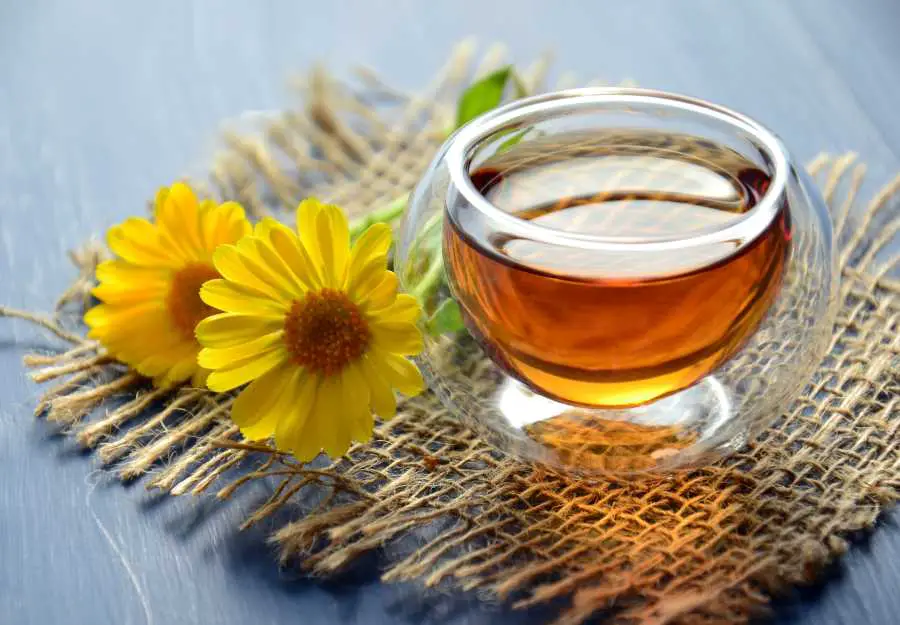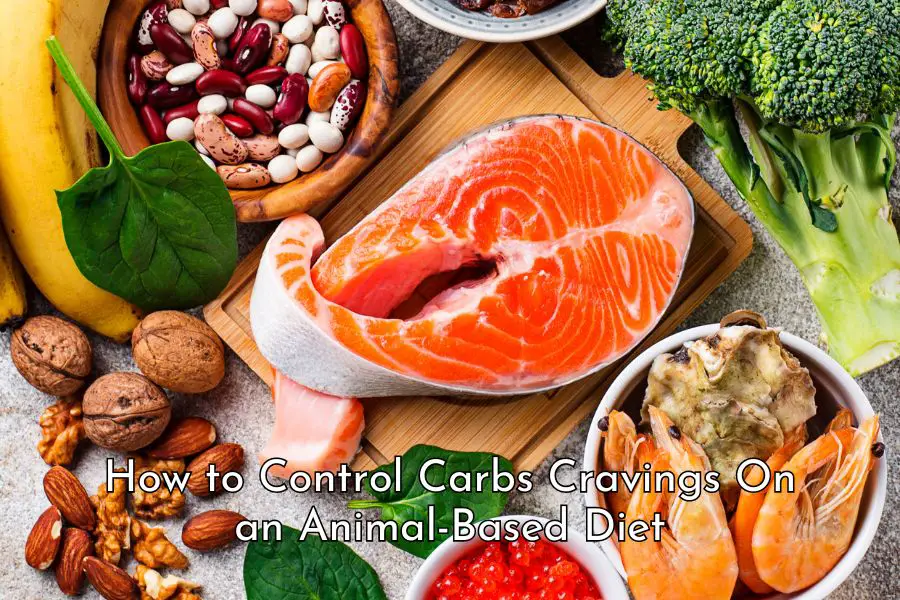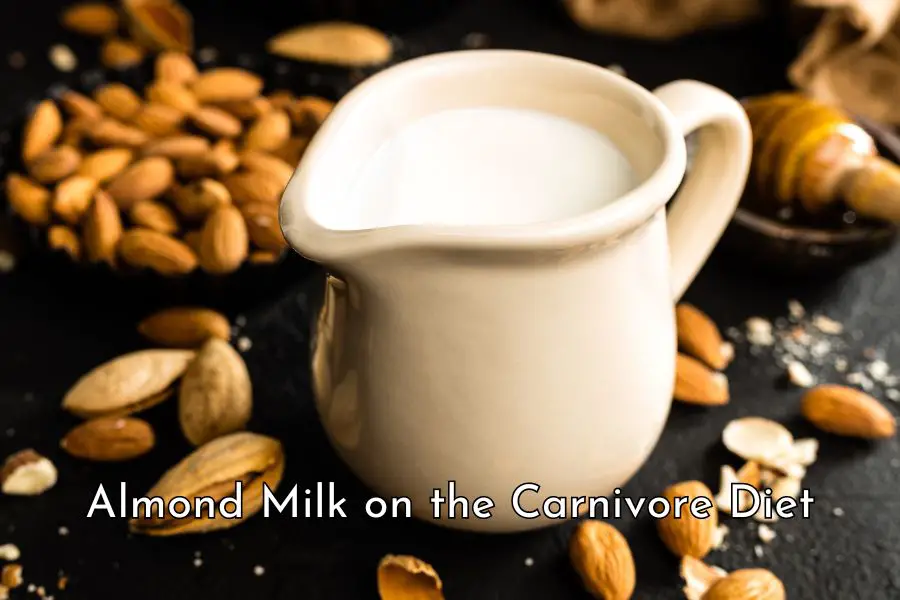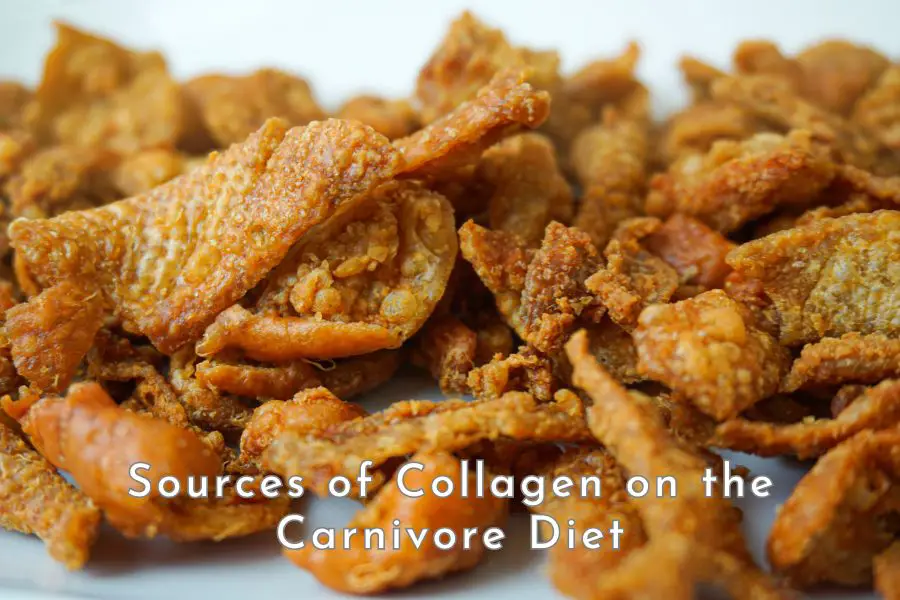The carnivore diet means eating animal source food only and tea is a plant food, so technically, you shouldn’t drink tea.
However, it seems a bit boring drinking just water day after day and, after all, you’ve read a lot about the health benefits of tea, from cancer prevention, weight loss to anti-aging.
So is tea an okay exception? Can you still drink tea on the carnivore diet?
This article will review the literature on the perceived health benefits of tea as well as its potential adverse effects.
In summary, it is best to avoid drinking tea on the carnivore diet or on any other diet for that matter.
This is because while evidence of health benefits of tea consumption is generally inconclusive due to the nature of epidemiological studies, antinutrients in tea such as oxalate, caffeine, tannins, and phytate pose many health risks.
Green tea extracts in weight loss supplements have even been attributed to acute liver failure in many individuals.
In addition, you may also be exposed to pesticide and herbicide residues, heavy metals, and microplastics when drinking tea.
I know it is a very controversial answer that is contradictory to most advice you find on the web regarding tea. However, my aim is not to be controversial and I don’t come up to this conclusion lightly; it is based on a comprehensive review of available evidence on tea which I will share in detail below.
Please do your own research and form your own conclusion to decide for yourself if you should continue drinking tea or not.
Different types of tea
Various types of tea including green tea, black tea, and oolong all come from the same plant, Camellia sinensis, an evergreen shrub native to Asia. The differences in flavor and texture are due to how tea leaves are processed.[1]
For green tea, the tea leaves are picked, quickly steamed or pan-fried, rolled and then dried to prevent too much oxidation and keep the leaves green.[2]
Due to the quick processing, green tea has a lighter flavor and a higher catechin content (a type of flavonoids) compared to black tea.[3]
Black tea, on the other hand, is made from tea leaves that are wilted, rolled, and left to fully oxidize before being dried. This gives black tea its black color and malty and smoky flavor.[4]
Oolong tea is partially oxidized and falls somewhere between green tea and black tea.
Nutrition in tea
The table below shows the nutritional contents of three common teas: green tea, black tea and oolong tea.
As you can see, there is a very small amount of a few nutrients in all three types of tea (e.g. riboflavin, vitamin B6, folate, copper, magnesium, and potassium).
These are minuscule compared to nutrients in animal-sourced foods. They are also bound to anti-nutrients in tea which interfere with absorption (further discussed below).
People mainly drink tea for its flavor, mild stimulant effect due to the caffeine content, and perceived health benefits of tea which we will look at in more detail below.
They also drink tea because it is considered a healthier choice than soft drinks and coffee which are higher in calories and caffeine content.
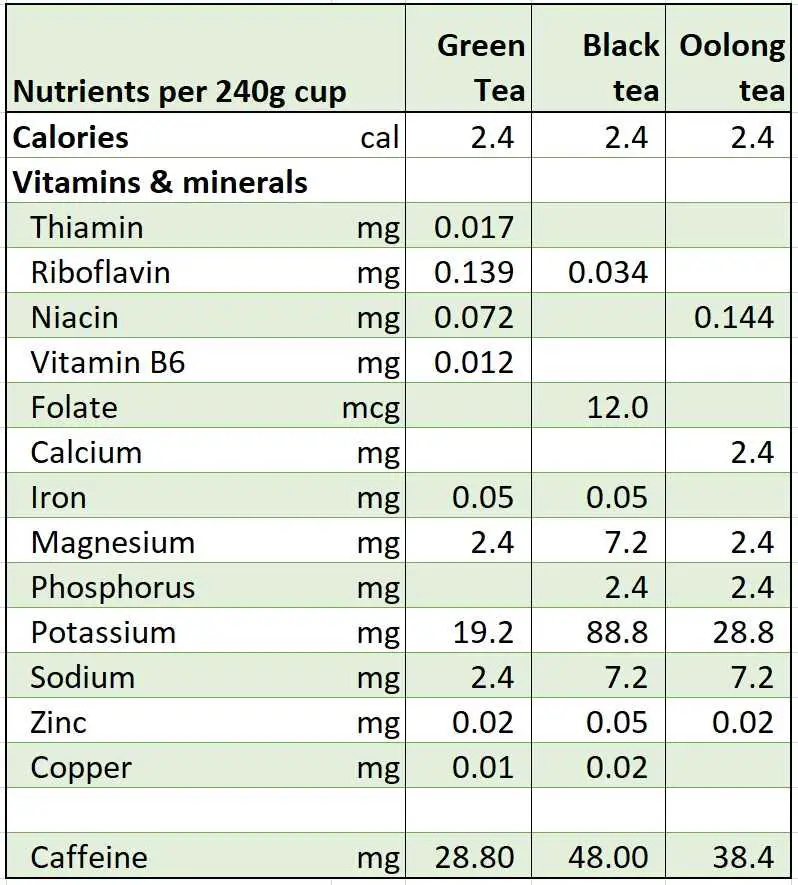
Should you drink tea on the carnivore diet?
As stated above, in my opinion, it is best to avoid drinking tea on the carnivore diet or on any other diet for that matter. This is because:
- Tea contains plant compounds such as oxalate, tannins, phytate and caffeine which pose many health risks
- Tea may contain high levels of pesticide residues including illegal pesticides, heavy metals and microplastics
- Green tea extracts in weight loss supplements even cause liver damages in some people
- Evidence of health benefits of tea consumption is inconclusive due to the nature of epidemiological studies.
1. Tea is a significant source of oxalates
What are oxalates?
Oxalates or oxalate acids are anti-nutrients that plants produce to protect themselves.
Oxalate binds with calcium and other minerals to form oxalate crystals, the main ingredient in kidney stones.[5]
While some plant foods can be high in calcium and other minerals, if they are also high in oxalate, their mineral contents become useless because they are bound to oxalate.[6]
If oxalate-rich foods are consumed regularly over a long period of time, there will be a build-up of oxalate crystals in terms of size and quantity. These crystals will be deposited in joints, muscles, and organs and can cause many health problems, the formation of kidney stones is just one of them.[7, 8]
Other potential health issues caused by excessive oxalate crystal deposits throughout the body include: [9, 10, 11, 12, 13, 14, 15]
- inflammation
- damage to the eyes
- vulva pain
- fibromyalgia
- autoimmune diseases
- nervous system dis-function
- damage to the gastrointestinal tract
- mineral deficiency
- electrolyte imbalance.
Imagine having a lot of tiny sharp crystals deposited all over your body that cause damages to joints, organs and tissues that your body is unable to get rid of fast enough and you will understand the wide-ranging implication of consuming oxalate-rich foods.
Oxalate is capable of causing death in adults at a minimum dose of 4 to 5 grams. [16]
Examples of foods high in oxalates are spinach, rhubarb, almonds, beets, potatoes, starfruit, peanuts, cocoa powder, chocolate, and soy. [17]
If you eat with seasons and happen to eat some fruits or vegetables high in oxalate, when the season is over, your body will have the time to dump the stored oxalate.
However, if you eat those oxalate-rich foods all year round, your body will be in a constant oxalate storing mode and oxalate-related health problems will eventually emerge.
Oxalates in tea
As can be seen in the table below, tea, especially black tea is a significant source of oxalate.
| Tea | Oxalate (mg/cup) |
|---|---|
| Green tea | |
| – Twinings Green Tea | 2.27 |
| – Dilmah Green Tea | 1.67 |
| – Lipton Green Tea Jasmine | 1.16 |
| Oolong tea | |
| – Lipton Oolong Tea | 0.58 |
| Black tea in tea bags | |
| – Twinings English Breakfast | 7.63 |
| – Twinings Lady Grey | 8.03 |
| – Twinings Lemon Scented | 10.21 |
| – Dilmah | 11.29 |
| – Lipton | 6.22 |
| Black tea, loose | |
| – Twinings Earl Grey | 4.41 |
| – Choysa | 5.10 |
| – Bell | 14.72 |
| – Tiger | 12.62 |
| – Bushells Blue Label | 11.74 |
It is estimated that typical diets contain upward of 200 – 300 mg of oxalate and, to prevent the formation of kidney stones, one should aim for less than 100 mg of oxalate a day and ideally around 50 mg a day.[18]
If you drink only a few cups a day, the total oxalate intake from tea is not much. However, if you drink 6 to 8 cups a day or more, depending on whether you have it with milk or not (the calcium in milk will bind to oxalate in tea), your oxalate intake can be substantial.
A regular tea drinker consuming six cups of tea/day would have an intake of between 26.46 and 98.58 mg soluble oxalate/day from loose black tea, 17.88 and 93.66 mg soluble oxalate/day from black tea in tea bags.
Charrier et al (2002)
If you have previously been on a high oxalate diet, it’d be a good idea to eliminate or minimize your oxalate intake so that your body has the opportunity to excrete it. Animal-sourced foods don’t have oxalate.
2. Tea is source of tannins
What are tannins?
Found in grapes, tea, pomegranates, persimmons, blueberries, chocolate, legumes and many other plant foods, tannins are a type of polyphenols that produce an astringent or bitter taste. [19]
Tannins are a part of the plant’s self-defense mechanism against pathogens, herbivores, and changing environmental conditions. [20]
Because of their bitter taste, tannins make it unpleasant for predators when consumed. Tannins also cause further health problems down the track due to their anti-nutrient and toxic properties. [21]
One characteristic of tannins is they bind and precipitate proteins. Tannins first bind with proteins and then aggregate, resulting in the formation of the precipitate. They also bind with digestive enzymes and can adversely interfere with digestion and metabolism. Tannins can also obstruct the absorption of iron. [22, 23, 24, 25]
Tannins can be found in abundance in many plants and can account for up to 20 % of plants’ dry weight. [26]
Tannins have been used in the leather industry since ancient times because of their unique ability to form complexes with proteins. [27]
After unnecessary parts (hair, adipose tissue, epidermis, meat, etc.) are removed, animal hides are immersed in a solution of water and vegetable tannins for days and even weeks. [28]
Because animal hides are mostly made up of a protein called collagen, the tannins would bind with proteins and prevent the disintegration of the collagen fibers of the hides, transforming them into workable leather.
Although the level of tannins in tea is not like what is used in leather tanning, after enjoying a nice steak, you really don’t want it to soak in a tannin solution in your stomach by drinking tea immediately after your meal.
Tannins in tea
Tea contains a significant amount of tannins. For example, a study estimates that green tea, oolong tea and black tea contain from around 3% to 13% tannins with black tea containing the most tannins. [27]
| Tea | Tannin content |
|---|---|
| Green tea | 2.65% |
| Oolong tea | 8.66% |
| Black tea | 13.36% |
Although the full extent of the impact of tannins on human health is yet understood, tannins have been found to interfere with nutrition absorption, especially ion. People at risk of iron deficiency are advised to consume food rich in iron such as meat, fish and poultry and consume tea between meals instead of during the meal. [29, 30, 31]
In animal studies, tannins are found to have a major impact on animal nutrition, growth and health because of their ability to form complexes with carbohydrates, proteins, polysaccharides, bacterial cell membranes and digestive enzymes. [32]
In poultry, levels of tannins from 3% to 7% cause death and in swine, levels of tannins above 5% of the diet are often lethal. [33]
3. Phytic acid
Similar to tannins, phytic acid is another anti-nutrient in tea that can contribute to nutrition deficiency.
Phytic acid or phytate is a compound that plant uses to store phosphorous. Because phytic acid strongly binds to minerals like calcium, iron, magnesium, manganese and zinc, it prevents the absorption of these minerals. [34]
While some animals can handle phytic acid, humans can’t. You may consume a plant food that is high in many essential minerals but, if they are bound to phytic acid, they have a very low bio-availability.
Phytic acid can be found in many plant food but is especially high in seeds, nuts, legumes, and whole grains.
Phytic acid levels in tea are generally lower than those found in seeds, nuts and grains. For example, green tea’s phytic content is in the range of 0.28 – 1.1g/100g compared to 0.61 – 2.38g/100g for kidney beans, 0.39 – 1.35g/100g for wheat and 0.72 – 2.22g/100g for maize. [35, 36, 37]
The level of phytic acid in tea water is likely to be small. However, considering the whole picture, phytate’s negative impact is all the more reason you should avoid tea if you can.
4. Caffeine
Caffeine in tea is not good for you either.
I have written an in-depth post on why you shouldn’t drink coffee on the carnivore diet and covered the adverse impacts of caffeine on health, please do check it out. In summary:
- Caffeine is a stimulant that interferes with the normal healthy functioning of your brain. Caffeine gives you the illusion of having an energy boost and feeling less tired, more alert, and even more creative. However, what caffeine does is it binds to adenosine receptors in the central nervous system, stop these adenosine receptors from doing their job which is producing the feeling of tiredness. Over time, your brain is used to getting caffeine and this can lead to a significant change in the chemical make-up of your brain via the upregulation of adenosine receptors
- Caffeine is addictive. If you drink caffeinated beverages regularly, you will gradually build up a tolerance to caffeine and need to increase the dose to achieve the same effect. Over time, if you find that you need your regular dose of caffeine to function normally, it is a sign that you might be addicted to caffeine. And if you suddenly stop drinking tea, coffee or soda, you will suffer from withdrawal symptoms such as headaches, low energy, irritability, and anxiety
- Caffeine reduces your sleep quality. Caffeine significantly disrupts sleep and reduces the amount of deep non-rapid eye movement sleep which is the important restorative sleep when your body repairs and regenerates tissues, builds bones and muscles and strengthens the immune system. The ongoing reduction in deep restorative sleep will have a cascading adverse impact on other aspects of your health
- Caffeine poses other health risks. There is also evidence linking caffeine consumption to insomnia, anxiety, digestive issues, increased blood pressure, muscle breakdown, and other health risks.
Caffeine levels in tea are a lot lower than in coffee but if you drink 6 to 8 cups of tea a day or more, the amount of caffeine in tea can add up very quickly.
As shown in the table above, a cup of tea can have from 29 to 48 mg of caffeine compared to around 95 mg of caffeine in a cup of coffee.
So, the caffeine in two to three cups of tea roughly equals the amount of caffeine in one cup of coffee.
The problem is because people think tea is low in caffeine and considered healthy, they can drink a lot of tea throughout the day and it will add up to a lot of caffeine.
5. Tea may contain pesticides and herbicides
Being the most commonly consumed beverage in the world, the demand for tea is huge and that demand is being met by countries like China, India, Kenya, and Sri Lanka where there is a lack of rigorous laws controlling pesticide use.
Indian tea
In 2014, a Greenpeace India investigation, which tested 49 different teas, found that nearly 94% of the tea samples tested in India contained at least one of 34 different pesticides, while over half contained a toxic cocktail of more than 10 different pesticides. [38, 39]
DDT was found in 67% of the tea samples even though it has been banned for such application in India since 1989. [40]
Many tea samples tested positive for neurotoxicants, Monocrotophos, a highly hazardous organophosphorus pesticide. [41]
In addition, suspected insecticides associated with the global decline in bee populations (neonicotinoids like thiacloprid and thiamethoxam) were also found. [42]
The tested tea samples came from 8 of the top 11 companies in India which also export to countries like the US, Uk, Russia, UAE and Iran. [43]
Chinese tea
Another Greenpeace investigation into Chinese tea in 2012 found similar results.[44]
All 18 samples randomly selected and tested contained at least 3 pesticides.
Fourteen samples tested positive for pesticides that may affect fertility, harm an unborn child or cause heritable genetic damage.
Twelve samples contained at least one pesticide banned for use on tea like methomyl and endosulfan, the latter has been banned globally under the Stockholm Convention due to its toxic properties.
One sample was found to contain a whopping 17 different kinds of pesticides.
The tea samples came from the top 10 tea sellers in China.
FDA tests of imported tea
Out of 65 samples that the FDA tested during 2008 – 2012, 94 violations were found in these samples with 76 being listed as “no registration” and 18 as “excess of tolerance”. Thirty percent of the samples had two or more illegal residues. [45]
Other tests
Testings done on tea samples from other countries also found similar contaminations of pesticides as well as heavy metals such as lead and aluminum. [46, 47, 48, 49, 50]
Arguably, meat may also contain pesticides, herbicides and other contaminants, depending on where you get your meat from.
However, there is a clear distinction between meat and tea.
With regard to meat, you must get the necessary nutrients to survive from somewhere. If you can only afford grain-fed beef, so be it, it is still a lot more nutritious than other plant food options.
On the other hand, you have the choice to drink or not drink tea or coffee. You don’t need those beverages to survive after all. Apart from being a stimulant, they don’t offer much nutritional value.
6. Tea bags may contain harmful substances
In addition to other contaminants, if you use tea bags instead of loose leave tea, you will be exposed to plastic particles released from the tea bags as well.
A study has found that steeping a single plastic teabag at brewing temperature (95°C) releases approximately 11.6 billion microplastics and 3.1 billion nano plastics into a single teacup. [51]
This is substantially higher than the amount of microplastics we might ingest from other sources such as plastic water bottles, sea salt, and some seafood. [52, 53, 54]
7. Green tea extracts in weight loss supplements can cause liver problems
Although drinking green tea has not been associated with liver injury, green tea extracts have been found to cause toxic liver diseases in some individuals. [55]
Examples of cases reported are:
- A 37 year old woman developed acute hepatitis 4 months after starting a weight loss supplement called The Right Approach Complex (Pharmanex, Provo, Utah), the major component of which was green tea extract. Her condition improved after stopping the supplement. However, one year later, she resumed The Right Approach Complex and experienced jaundice and abdominal pain. She again recovered after stopping the supplement. [56]
- A 16 year-old male took Green Tea Fat Burner (Applied Nutrition) and other supplements for 60 days to lose weight and this led to acute impending liver failure. Several causes of acute liver injury were ruled out, and given his liver histology consistent with previously published reports of toxicity associated with green tea extract, his liver injury was most likely due to his ingestion of Green Tea Fat Burner. [57]
- A previously healthy 44-year-old woman developed acute liver failure after 6 months of adhering to a weight-loss program that recommended increased physical activity and the intake of dietary supplements containing green tea extract (720 mg/day). Because her medical conditions continued to deteriorate after admission, she later on underwent a liver transplant. As no other cause could be identified, her liver failure was most likely related to the consumption of green tea extract. [58]
- A 41 year old woman in general good health developed severe hepatitis around 4 weeks after starting a weight loss supplement called “Green Tea Fat Burner” containing green tea extract. Although the supplement contained 20 different ingredients, the liver injury was judged to be highly likely due to green tea extract. [59]
- A 27 year old man developed hepatitis 4 to 5 weeks after starting Hydroxycut, which contains contains high concentrations of green tea extract, for weight loss. He was ingesting 1.86 g green tea extract daily from the supplement. His condition improved upon discontinuation of the supplement. [60]
More than 100 cases of liver injury attributed to green tea extract have been reported in the literature. [61]
In a study that looked at 40 cases of liver injury attributed to green tea, 35% of the cases were judged as severe, 8% necessitated liver transplantation, and 3% resulted in chronic injury.[62]
In a large randomized, double-blind, placebo-controlled study of green tea extract on breast cancer biomarkers involving 1075 postmenopausal women, it was found that green tea extract was associated with ALT elevations (an enzyme that is elevated with liver injury) in 6.7% of patients compared to 0.7% of controls. [63]
In this study, the extract was discontinued in patients with elevated ALT. When the extract was reintroduced in a group of patients, ALT elevations quickly followed but were resolved again with stopping.
8. Benefits of drinking tea are mostly from observational studies
Many health benefits have been attributed to tea such as better heart health, anti-cancer effect, anti-aging effect, weight loss, and diabetes.
However, most of those health benefits of tea consumption are based on observational studies that can only show associations and cannot prove causation.
Centenarians may happen to drink a lot of tea but one can not deduce that tea consumption increases life expectancy because there is a large number of variables such as genetics, living environment, education, stress, diet, exercise, and other lifestyle habits that can affect people’s life expectancy.
Generally, observational studies are also subject to considerable measurement error, recall bias and recall failure as well as suffer from healthy user bias.
For example, participants who drink green tea are more likely to be health-conscious, have a healthier diet, be more physically active and are less likely to drink sodas and energy drinks.
A Cochrane review (2009) found insufficient and conflicting evidence on the ability of green tea consumption to reduce cancer risk. [64]
Similarly, another Cochrane (2012) review found that green tea consumption appears to induce only a small and statistically insignificant weight loss in overweight or obese adults. Such small weight loss was deemed to be clinically irrelevance. [65]
There is some evidence indicating that tea consumption may lower the risk of dementia, suppress the growth of bacteria, improve insulin sensitivity, lower the risk of type 2 diabetes, improve cholesterol profile, etc. [66, 67, 68, 69, 70, 71, 72, 73, 74, 75, 76, 77]
I would not deny that there is some evidence of health benefits attributed to tea consumption. However, judging the overall benefits and risks associated with tea consumption, in my opinion, it is best to avoid tea.
Conclusion
Tea is not recommended on the carnivore diet.
Although it has only a few calories, it also has very little nutrition while being a source of oxalate, tannins, phytate, caffeine, and other harmful chemicals.
The ICMNI center in Hungary has been using a high-fat animal-based diet to successfully treat many chronic conditions.
In their diet protocol, black and herbal tea are excluded but coffee is allowed in moderation only after a full regeneration of the digestive tract. They did not mention green tea and I assume it is also excluded because they recommend their patients to drink only water.
If you choose to keep drinking tea for whatever reasons, my recommendations are:
- Choose organic tea to avoid pesticide and herbicide residues
- Drink green tea instead of black tea because it has less caffeine and tannins
- Use loose leave tea instead of tea bags to avoid microplastics and nasty chemicals leaching from tea bags
- Drink tea between meals rather than during meals
- Don’t brew for a long time, the longer you steep your tea, the more anti-nutrients, pesticides and heavy metals it will have
- Drink it in moderation if you can.
Other posts you might be interested in
Is Diet Coke Okay on the Carnivore Diet?
Are Eggs Okay on the Carnivore Diet?
Can You Eat Avocados on the Carnivore Diet?
Can You Drink Milk on the Carnivore Diet?
Is It Okay to Eat Bacon Every Day on the Carnivore Diet?
Is Cheese Okay on the Carnivore Diet?
Who Might Benefit from a Strict Carnivore Diet?
Disclaimer: The information in this post is for reference purposes only and is not intended to constitute or replace professional medical advice. Please consult a qualified medical professional before making any changes to your diet or lifestyle. Please check out our disclaimer for more detail.
Photo credit: Marie Fe on Pexels

